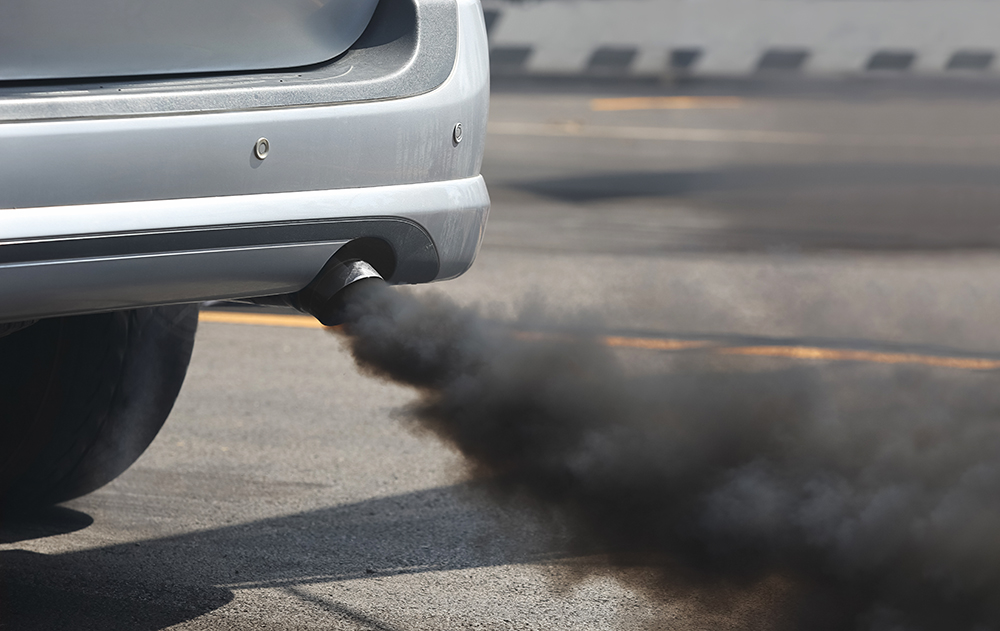Comptroller Stringer Op-Ed: Strong Clean Vehicle Standards Will Help U.S. Automakers Compete Globally

(New York, NY) — Fortune published an op-ed by New York City Comptroller Scott M. Stringer urging the Biden administration to commit to, and automakers to support, strong clean vehicle standards that align with other major markets calling for greater vehicle efficiency and a rapid transition to electrification. In addition, Comptroller Stringer called for the Biden administration to meet climate goals by putting the industry on a path toward 100% zero-emission vehicle sales by 2030, as well as achieving adequate reductions in rising emissions from conventional vehicles in the interim.
Text of the op-ed is available below and can be viewed online here.
Polluting products and outdated strategies—facilitated by weak regulations—are bad investments. Over the past few years, financial markets have rewarded businesses that are actively building the clean, carbon-free energy economy, while companies anchored to polluting practices have seen share prices tumble.
As fiduciary to the retirement security of more than 700,000 public employees of New York City, it’s my job to keep their money safe and invested in companies that will survive and thrive in the long term.
That’s why, earlier this year, I joined with the mayor and trustees to announce that the city’s pension funds would divest $4 billion from companies that own fossil fuel reserves and invest more than $6 billion in climate change solutions.
And it’s why I’m now urging the Biden administration to commit to, and automakers to support, strong clean vehicle standards that align with other major markets calling for greater vehicle efficiency and a rapid transition to electrification.
Over the past few years, we’ve seen some automakers, including General Motors, Toyota, and Fiat Chrysler, engage in short-term thinking and support weaker standards that will ultimately cede their competitive edge to automakers around the world—that is, unless our leaders step in to put them back on track.
After the fallout from the 2008 financial collapse, the Obama administration negotiated with automakers to secure the largest increase in fuel efficiency and emissions standards in more than a generation. Automakers were successful in meeting the standards, while recording record profits.
Under Trump, these regulations were rolled back, undermining the industry’s investments in technologies that save consumers money and reduce pollution. Recognizing that stronger standards benefit customers, the environment, and the health of the industry, five automakers, including Ford, pledged to follow stronger standards brokered by California.
Given increasingly stringent regulations in major markets such as China and the EU, supporting weak standards is not a recipe for success in a global market. And history has shown that when standards stagnate, so does progress.
Since President Biden’s election, we have seen more automakers, including GM and Ford, announce aspirations to transition to electrification. While this is certainly positive, in order to ensure needed cuts to climate pollution and build back a robust, job-supporting American automotive industry, we need more than promises.
We need strong standards to send a clear market signal and ensure that those promises are kept, keeping a check on emissions and providing both auto companies and investors with predictability and certainty. This will drive investment in advanced technologies and provide a level playing field. In addition, strong clean vehicle standards are perhaps the most effective tool that our federal government has in combating climate change, which is the greatest threat to the global economy.
In addition to replacing the Trump regulations with strong standards consistent with the previous Obama standards, it is critical that the Biden administration get to work on the next round of standards. The Biden standards need to ensure that we meet climate goals by putting the industry on a path toward 100% zero-emission vehicle sales by 2030, as well as achieving adequate reductions in rising emissions from conventional vehicles in the interim.
If we want a strong economy that keeps our communities healthy and prosperous—and which produces the returns we need to keep pension fund returns flowing—we need strong standards that will ensure U.S. global competitiveness and sufficiently reduce emissions. We urge policymakers and automakers to do the right thing for our collective future.
###